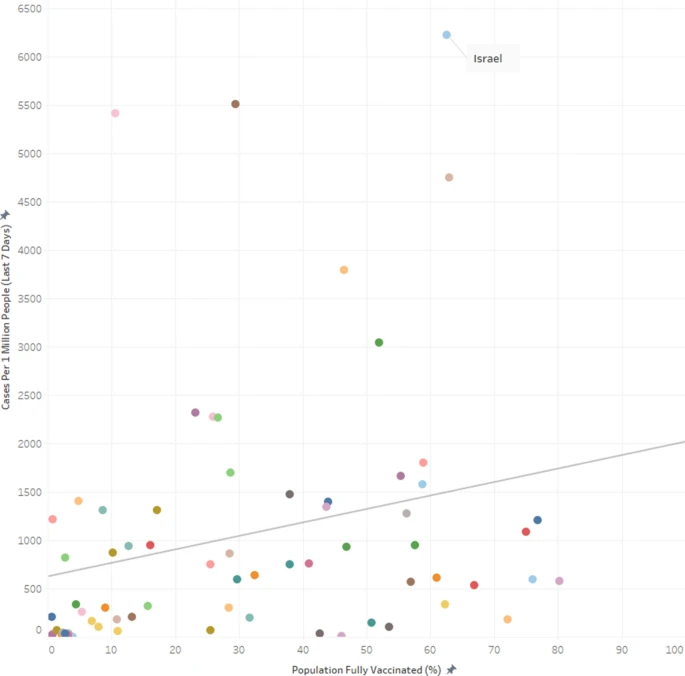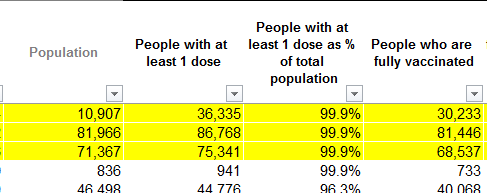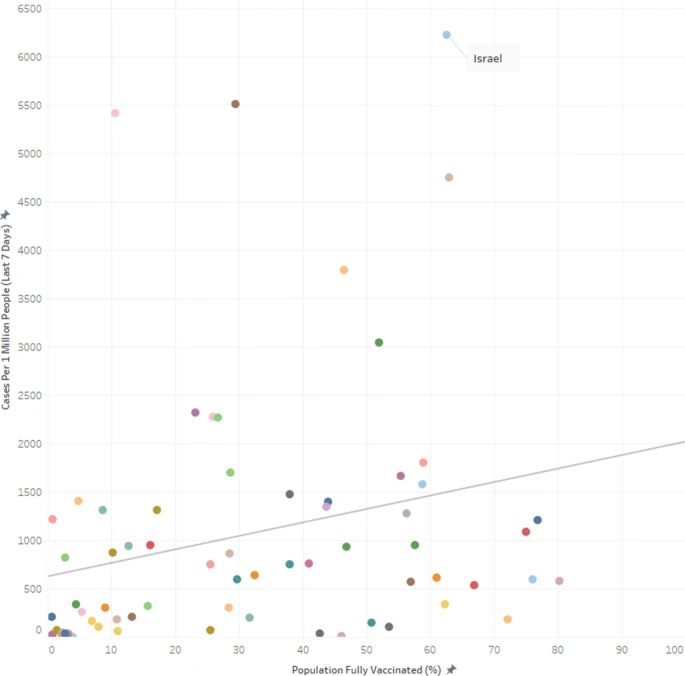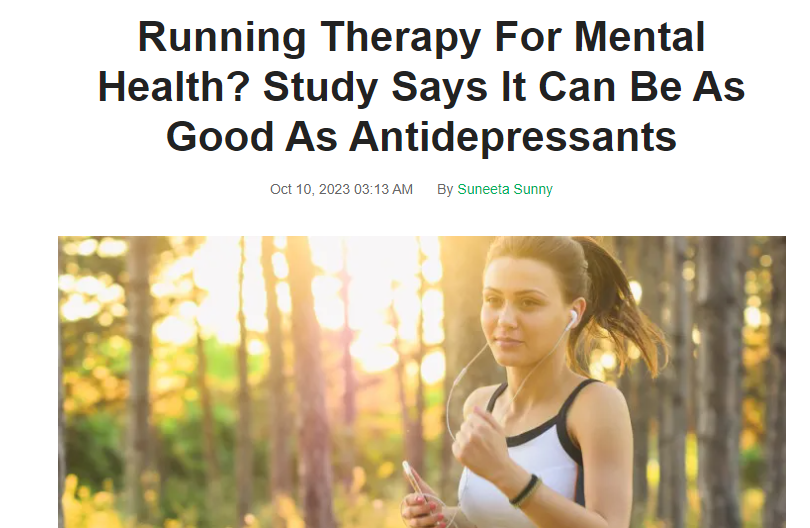This paper came out recently, and it is HUGELY popular among anti-vaccine advocates who are using it to suggest that vaccines don't work
It's also very fundamentally flawed. I'm a bit surprised it was published. Some thoughts 1/n
It's also very fundamentally flawed. I'm a bit surprised it was published. Some thoughts 1/n

2/n The paper is here, and it's basically a series of comparisons of publicly-available COVID case and vaccine data conducted by a Harvard professor and a high-school student (note-DO NOT BE MEAN TO THE STUDENT, NEVER BE MEAN TO STUDENTS) link.springer.com/article/10.100… 

3/n The study is broken into 2 sections. In the first, the authors took @OurWorldInData info, comparing the previous 7 days of case data between countries by vaccine rates. They produced this graph, showing no relationship between vaccines and reported cases 

4/n There are several fundamental mistakes with this analysis. The first one is a biggie - confirmed cases, as reported by countries, are a useless statistic by themselves
5/n This goes back to the very early days of the pandemic - cases are, by definition, a function of tests. Without tests, you don't confirm cases, and therefore this comparison makes no sense at all on its own
6/n Did this impact the author's graph?
Very clearly yes. For example, let's compare the country Georgia (5408 cases/mil) with some of the places with less than 50 cases/mil in the author's graph on case/testing numbers

Very clearly yes. For example, let's compare the country Georgia (5408 cases/mil) with some of the places with less than 50 cases/mil in the author's graph on case/testing numbers


8/n There are 2 ways you can become immune to COVID-19 - vaccines and PRIOR INFECTION
In some of these countries (India, Russia, USA etc) it's likely that upwards of 40% of the entire population is immune to COVID-19 because they've had the disease and recovered (or died)
In some of these countries (India, Russia, USA etc) it's likely that upwards of 40% of the entire population is immune to COVID-19 because they've had the disease and recovered (or died)
9/n In other words, we might expect that in places like Brazil, where 1 in every ~350 people has died from COVID-19 since the pandemic began, there would be quite a bit of immunity even with relatively low vaccination rates
9.5/n So comparing places on case numbers without taking infection-induced immunity into account is nonsensical, unless for some reason you think that it does not prevent infections
10/n On top of this, we've got the issue of an arbitrary 7-day window. Angola looked really good if you downloaded the data on 3/09. It looks less good if you download the data today 

11/n So the first graph is pretty much useless as evidence. What about the second bit of the analysis?
Well, the authors essentially did the same thing, but for US counties. They found no difference in cases in US counties by vaccination status

Well, the authors essentially did the same thing, but for US counties. They found no difference in cases in US counties by vaccination status


12/n So vaccines didn't prevent cases in the US!
Except, well, there's issues here too. Let's look at the places that the authors explicitly mention in the text
Except, well, there's issues here too. Let's look at the places that the authors explicitly mention in the text

13/n Going to the file that the authors used, from Healthdata dot gov, you can see some really weird things pop up. Chattahoochee, GA, has a population of 10,907, but has 30,233 people who are fully immunized 

14/n Indeed, looking down the list, all three of the counties identified by name - Chatahoochee, Mckinley, and Arecibo - have vaccinated more people than live there by quite a wide margin 

15/n Meanwhile, of the counties classified as "low" transmission have rates of vaccination not just below 20%, but close to 0%!
What's going on here?
What's going on here?

16/n The answer appears, based on this excellent @jburnmurdoch thread, to be that in the US vaccine doses are recorded based on the county *where they are given* not where the person lives
https://twitter.com/jburnmurdoch/status/1447617130342588420?s=20
17/n This actually explains those discrepancies very neatly. Arecibo Municipio, for example, contains a stadium listed as a mass vaccination site in Puerto Rico 

18/n On top of this, we've got the same issue with picking an arbitrary 7-day window as before - the median population in a county from this spreadsheet is ~26k people, which means that small variations in case numbers make a big difference
19/n This is even more apparent when looking at those "low" transmission counties - the median population is ~1k people, with some counties having <100. Weekly variation makes a HUGE difference!
20/n For example, Mineral County, CO, pop 769 is a "low" transmission county on 9/2, but a week later on 9/9 it's a "high" transmission county because it reported...2 cases
21/n All in all, this analysis is a bit meaningless as well. Using a 7-day period is pointless, it again ignores infection-derived immunity, and the vaccine rates are clearly not correct by county
22/n Ultimately, I don't think this paper has much, if any, meaning, and it's kind of bizarre that it was published at all. It certainly proves nothing whatsoever about vaccines and their effectiveness
23/n Oh, also, these are the most basic issues in the paper. I didn't even get started on things like Non-Pharmaceutical Interventions, confounding, etc etc etc
24/n Worth noting that the authors' intentions were clearly not anti-vaccine per se, but I do think that the paper is nevertheless not sufficiently robust to actually conclude anything about vaccines 

• • •
Missing some Tweet in this thread? You can try to
force a refresh














